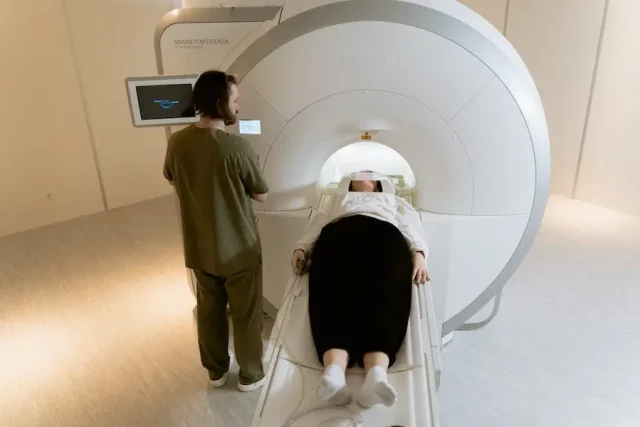The healthcare industry has long been one of the most important sectors of society, providing vital medical assistance to millions worldwide. The healthcare industry has been going through a transformative period in recent years, with technological advancements revolutionizing how medical professionals approach patient care. Adopting technology in the healthcare industry can improve patient care, reduce healthcare costs, and increase access to essential medical treatment.
Telemedicine And Telehealth
One of the most significant ways technology transforms the healthcare industry is through telemedicine and telehealth. Telemedicine refers to using telecommunications and information technology to deliver medical services remotely. It involves video conferencing, medical imaging, and other forms of electronic communication to connect patients with healthcare providers.
Conversely, telehealth refers to a broader range of healthcare services delivered remotely, including consultation, diagnosis, and treatment. Telehealth uses technology to connect patients with healthcare professionals, enabling them to access health services from their homes or other remote locations. Telehealth / Tryten S Tablet Cart has the advantage of reducing the need for in-person visits while still providing patients with quality care.
Telemedicine and telehealth have significant potential to improve access to healthcare for patients in rural and remote areas, reduce healthcare costs, and improve the efficiency of healthcare delivery. Patients will access medical care from the comfort of their homes without traveling long distances to see their doctors.
Artificial Intelligence and Machine Learning
Artificial intelligence (AI) and machine learning (ML) are revolutionizing the healthcare industry by providing new and innovative ways to improve patient care. AI and ML are used in various ways, from predicting patient outcomes to diagnosing diseases.
AI-powered tools analyze vast medical data quickly and accurately, helping healthcare providers make more informed decisions. For example, AI algorithms are being used to predict patient outcomes and identify which patients are at greater risk of developing specific conditions, such as sepsis.
Machine learning algorithms are being developed to improve the accuracy of medical diagnoses. For example, radiologists use machine learning algorithms to analyze medical images, assisting in identifying cancerous cells or other abnormalities.
Wearable Technology
Wearable technology is another area that is transforming the healthcare industry. Wearable devices, like smartwatches and fitness trackers, track vital health data, such as heart rate, blood pressure, and sleep patterns.
This data is by patients and healthcare providers to monitor health and track progress towards health goals. For example, patients with chronic conditions like diabetes use wearable technology to track their blood sugar levels and manage their disease more effectively.
Wearable technology also provides feedback and motivation to patients, encouraging them to make positive lifestyle changes that lead to better health outcomes.
Electronic Health Records
Electronic health records (EHRs) are digital versions of a patient’s medical record. EHRs can potentially revolutionize the healthcare industry by providing providers with immediate access to patient medical history, including past diagnoses, medications, and treatments.
EHRs also improve patient safety, reduce medical errors, and streamline healthcare delivery. For example, EHRs alert healthcare providers to potential drug interactions or allergies, reducing the risk of adverse reactions.
EHRs also improve communication between healthcare providers, reducing the= risk of miscommunication or duplication of tests and treatments.Undoubtedly, technology is transforming the healthcare industry in profound ways, from telemedicine and telehealth to AI and machine learning, wearable technology, electronic health records, virtual reality, and robotics.
By leveraging technology, healthcare providers will improve patient care, reduce healthcare costs, and increase access to medical treatment. As technology advances, the healthcare industry will surely experience even more transformational changes that will benefit patients, healthcare providers, and society as a whole.














